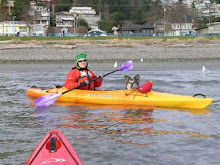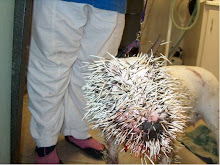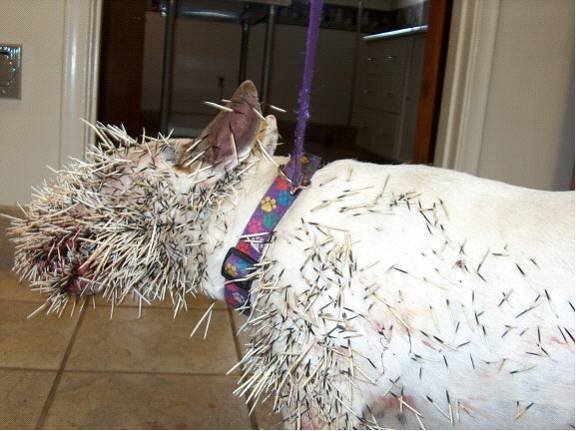Be a Cool Owner: Don’t Let Your Dog Overheat
Working up a good sweat in the hot summer months may be good for you, but it can lead to heat stroke in your dog and kill him in a matter of minutes. Heat stroke is a dangerous condition that takes the lives of many animals every year. Your dog's normal body temperature is 100.5 to 102.5 degrees Fahrenheit. If it rises to 105 or 106 degrees, the dog is at risk for developing heat exhaustion. If the body temperature rises to 107 degrees, your dog has entered the dangerous zone of heat stroke. With heat stroke, irreversible damage and death can occur. Here are some cold summer facts: The temperature in a parked car can reach 160 degrees in a matter of minutes, even with partially opened windows. And any dog exercising on a hot, humid day, even with plenty of water, can become overheated. Overheating often leads to heat stroke. As a pet owner, you should know the dangers of overheating and what to do to prevent it.
You should also know the signs of heat stroke and what to do if your dog exhibits those signs.When humans overheat we are able to sweat in order to cool down. However, your dog cannot sweat as easily; he must rely on panting to cool down. Dogs breathe in through the nose and out through the mouth, directing the air over the mucous membranes of the tongue, throat and trachea to facilitate cooling by evaporation of fluid. Your dog also dissipates heat by dilation of the blood vessels in the surface of the skin in the face, ears and feet. When these mechanisms are overwhelmed, hyperthermia and heat stroke usually develop.Dogs who have a thick coat, heart and lung problems or a short muzzle are at greater risk for heat stroke. Others at risk include
Puppies up to 6 months of age
Large dogs over 7 years of age and small dogs over 14 years
Overweight dogs
Dogs who are overexerted
Ill dogs or those on medication
Brachycephalic dogs (short, wide heads) like pugs, English bulldogs and Boston terriers
Dogs with cardiovascular disease and/or poor circulationWhat To Watch For If your dog is overheating, he will appear sluggish and unresponsive. He may appear disorientated. The gums, tongue and conjunctiva of the eyes may be bright red and he will probably be panting hard. He may even start vomiting. Eventually he will collapse, seizure and may go into a coma.If your dog exhibits any of these signs, treat it as an emergency and call your veterinarian immediately. On the way to your veterinary hospital, you can cool your pet with wet towels, spray with cool water from a hose or by providing ice chips for your dog to chew (providing he is conscious). Veterinary Care Heat related illness is typically diagnosed based on physical exam findings and a recent history that could result in overheating. Your veterinarian may perform various blood tests to assess the extent of vital organ dysfunction caused by overheating. Intensity of treatment depends upon the cause and severity of the heat illness.
Mildly increased temperature (less than 105°F) may only require rest, a fan to increase air circulation, fresh water to drink and careful observation.
Markedly increased temperature (greater than 106°F) must be treated more aggressively. Cooling can be promoted externally by immersion in cool water or internally by administering a cool water enema.
Underlying aggravating conditions, such as upper airway obstructive diseases, heart disease, lung disease and dehydration may be treated with appropriate medications, supplemental oxygen or fluid therapy.Home Care Heat stroke is a life-threatening emergency. Check your dog's temperature rectally if you suspect heat stroke. If it is over 105 degrees F, remove your dog from the heat source immediately and call your veterinarian. Meanwhile, place a cool, wet towel over your dog or place him in a cool bath. Do not use ice because it may cause skin injury. Spraying with water from a garden hose also works well.
always...always carry water with you on super hot days like it is in Vancouver this past few weeks...its important for both you and your dog...
WOOF!!
Subscribe to:
Post Comments (Atom)

































No comments:
Post a Comment